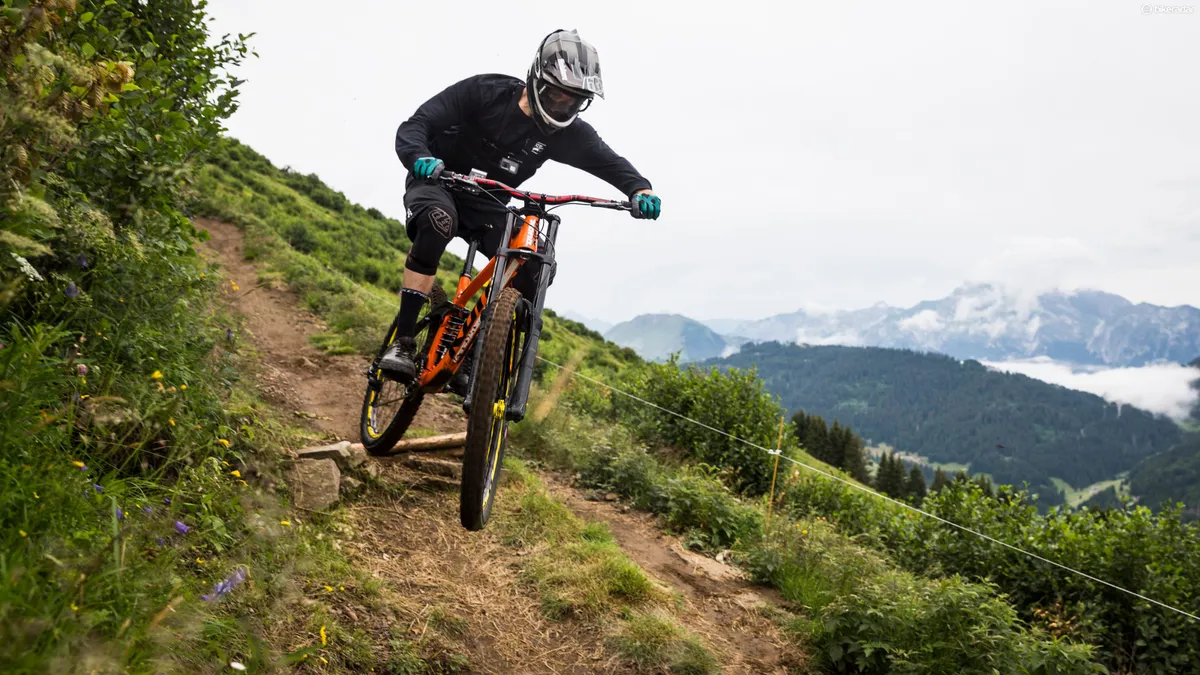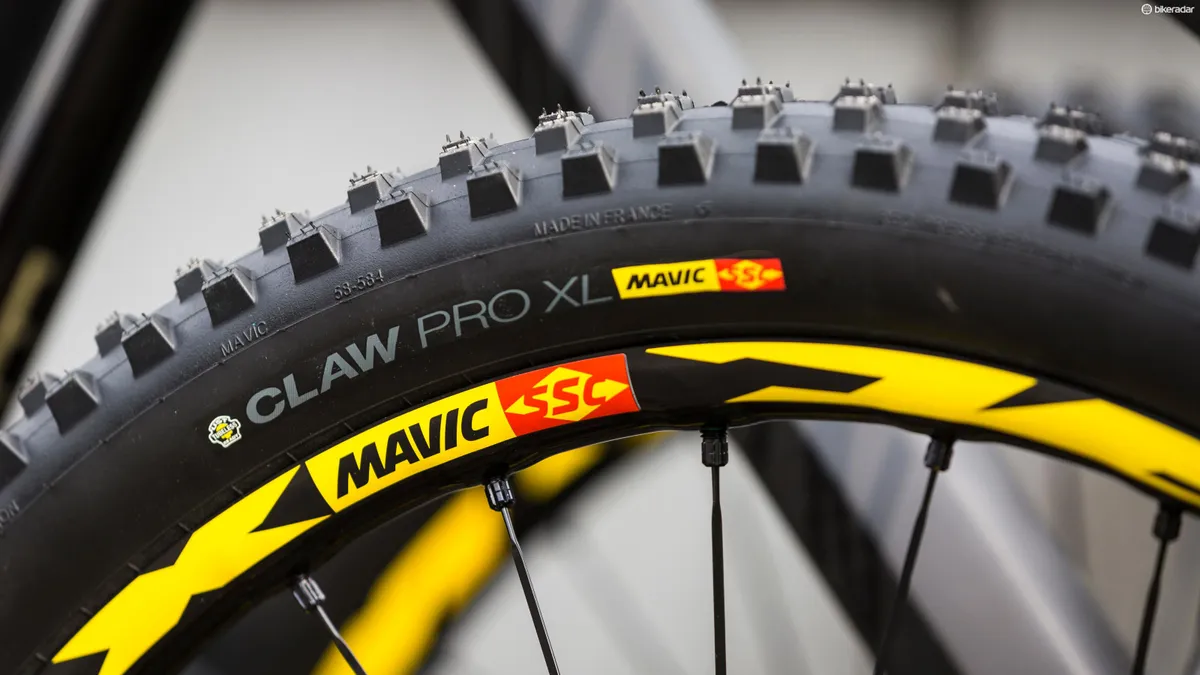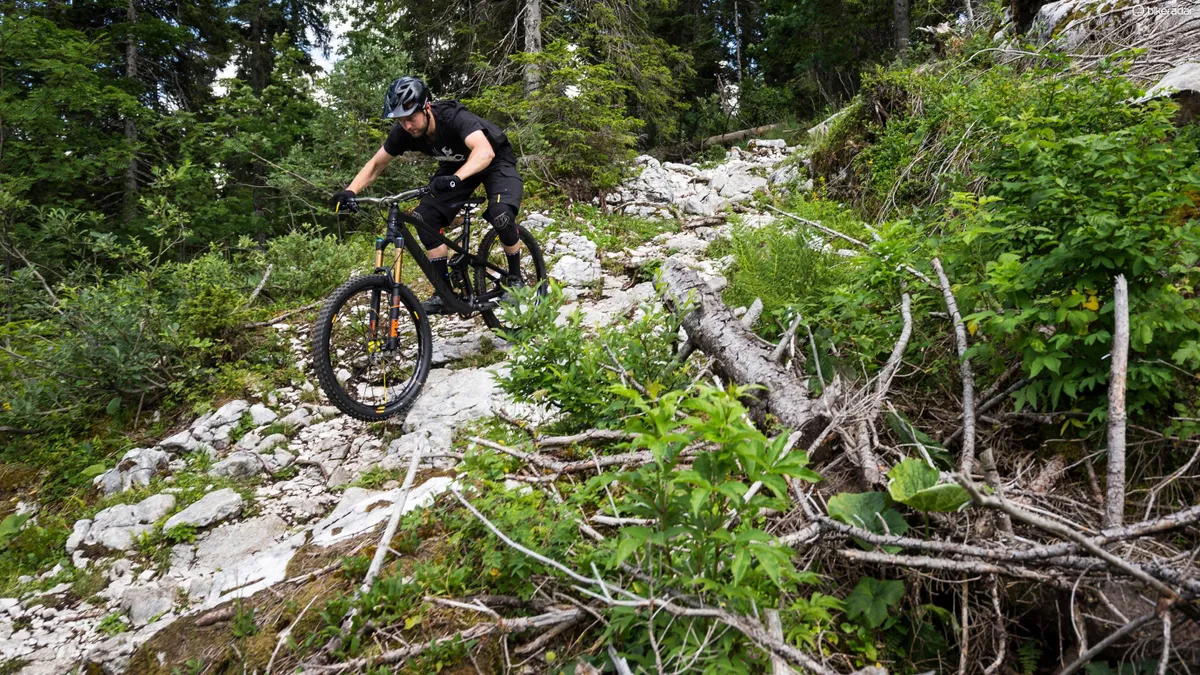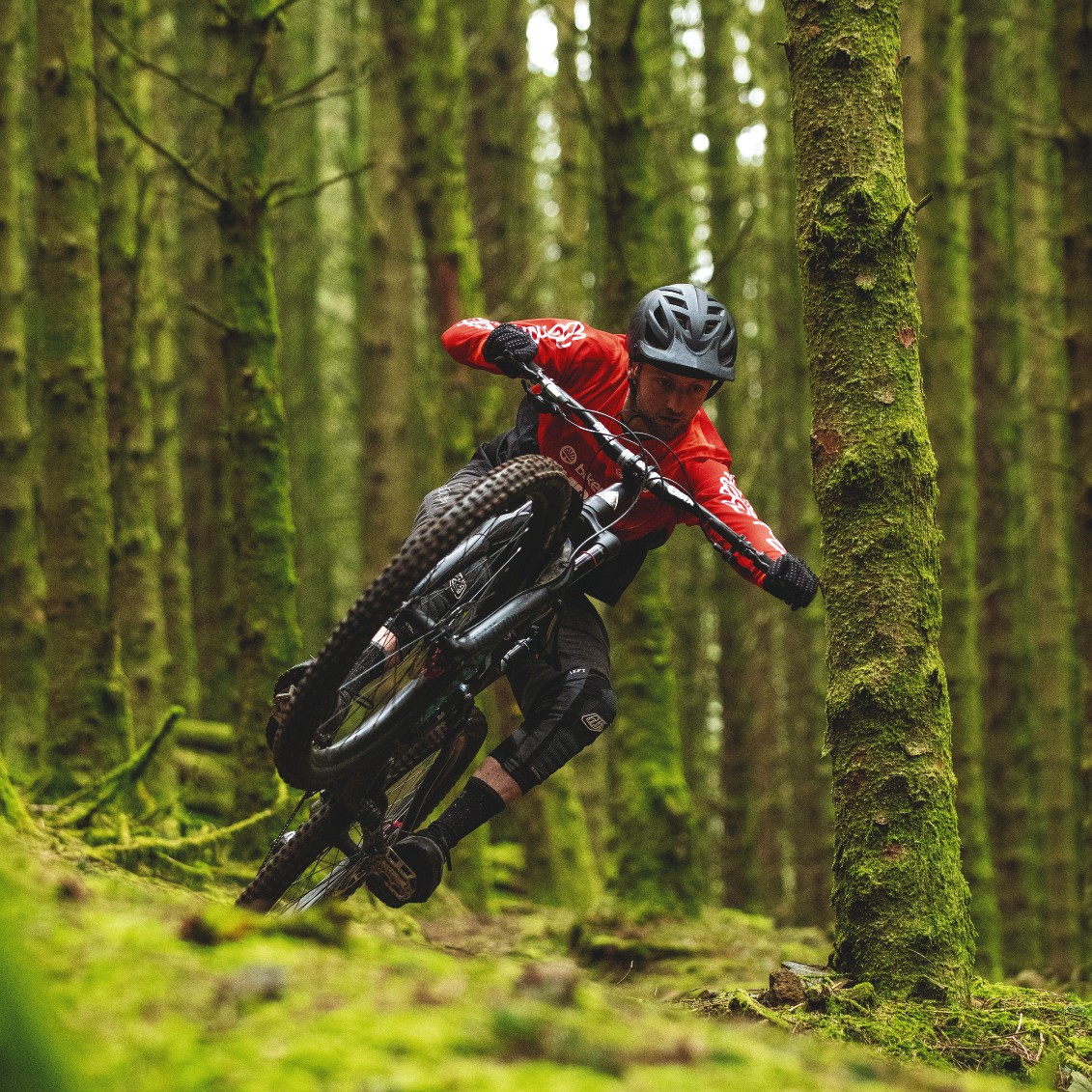Mavic's Deemax wheels are synonymous with downhill. The iconic yellow hoops have probably won more World Cup titles than any other wheelset, which is why when the French brand announced it was launching a new version for 2018, we headed to its headquarters in Annecy to check them out.
In Mavic's vocabulary, Deemax means gravity. The Deemax DH wheel has been around in various guises since 1995, but with the release of an enduro version earlier this year, Mavic intends to make the Deemax range the ultimate choice for all gravity disciplines.
The company makes no secret about its passion for racing, it wants these wheels to help its riders stand atop the podium; but at the same time is keen to point out that they are not just flimsy race-only hoops, they are robust and reliable enough for repeated use by everyday riders.
Looking at the rim widths of the new Deemax wheels, they look quite conservative in comparison to the ever widening trend these days. This is because Mavic believes it to be just that, a trend, and it says that wider is not actually what pro riders want to use.
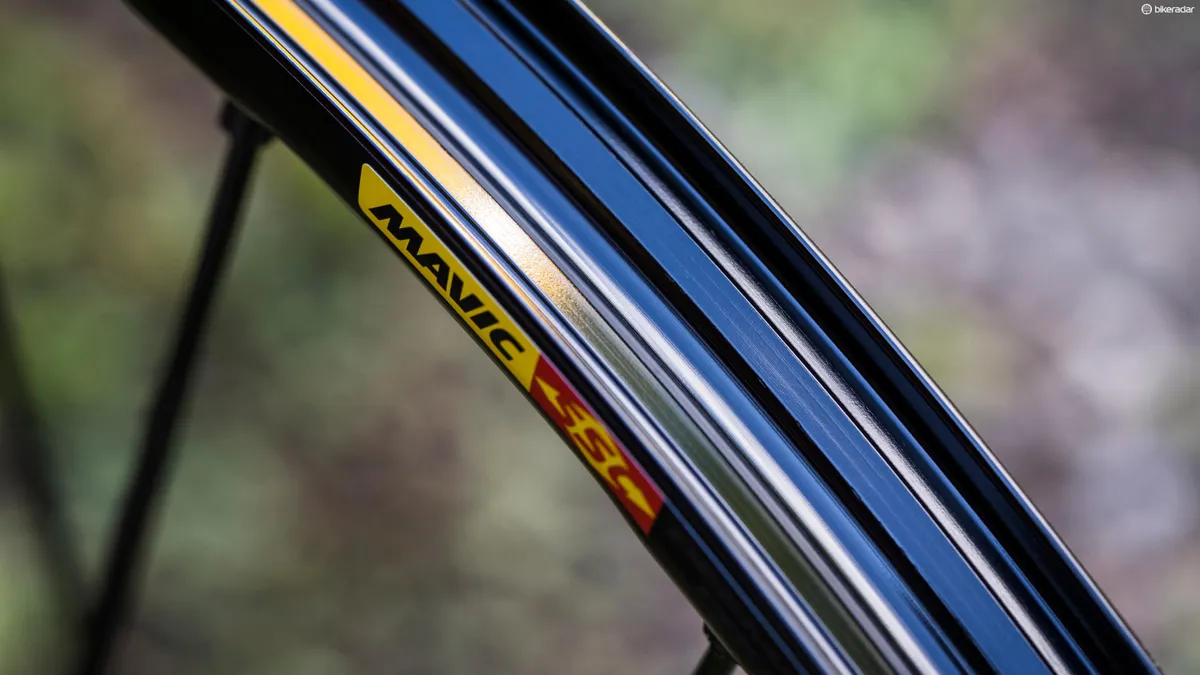
After extensive testing with Fabien Barel and other athletes, an internal width of 28mm was decided upon for the 2018 Deemax DH. Although it tested wider, Mavic felt that the tread patterns of most commonly available tyres started to lose their efficiency when pushed to the extremes, so believes 28mm to be the best compromise of all the ride characteristics.
While the widths may have increased, the rims have also been given a new asymmetric profile. The result of this is a more even spoke tension in the rear wheel, meaning more lateral stiffness and a similar level of compliance when turning in either direction.
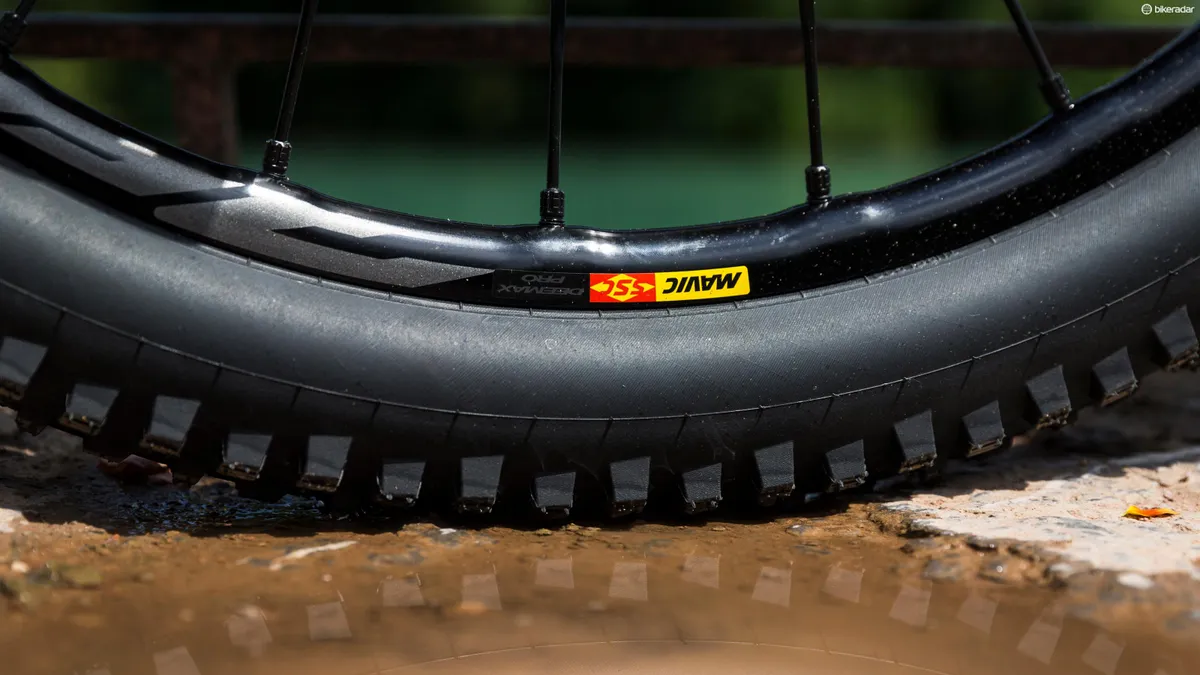
Both the DH and the Pro (enduro) wheels now have a hookless profile too. Vertical rim walls mean more strength and Mavic says the connection between rim and tyre reduces the chance of burping air to the minimum.
Besides these updates, all of the design features of the old Deemax rims are still there: ISM (Inter Spoke Milling) shaves off material between the spokes to save weight and reduce inertia, at the same time as maintaining strength around the spoke nipple. Spoke nipples are fixed into the rim with a method that Mavic calls Fore drilling. A wide diameter threaded nipple screws directly into the outer surface of the rim, leaving the internal bridge intact. Besides increased strength, this has the added benefit that you don't need to fit rim tape to run the wheels tubeless, so no more leaky duct tape bodges.
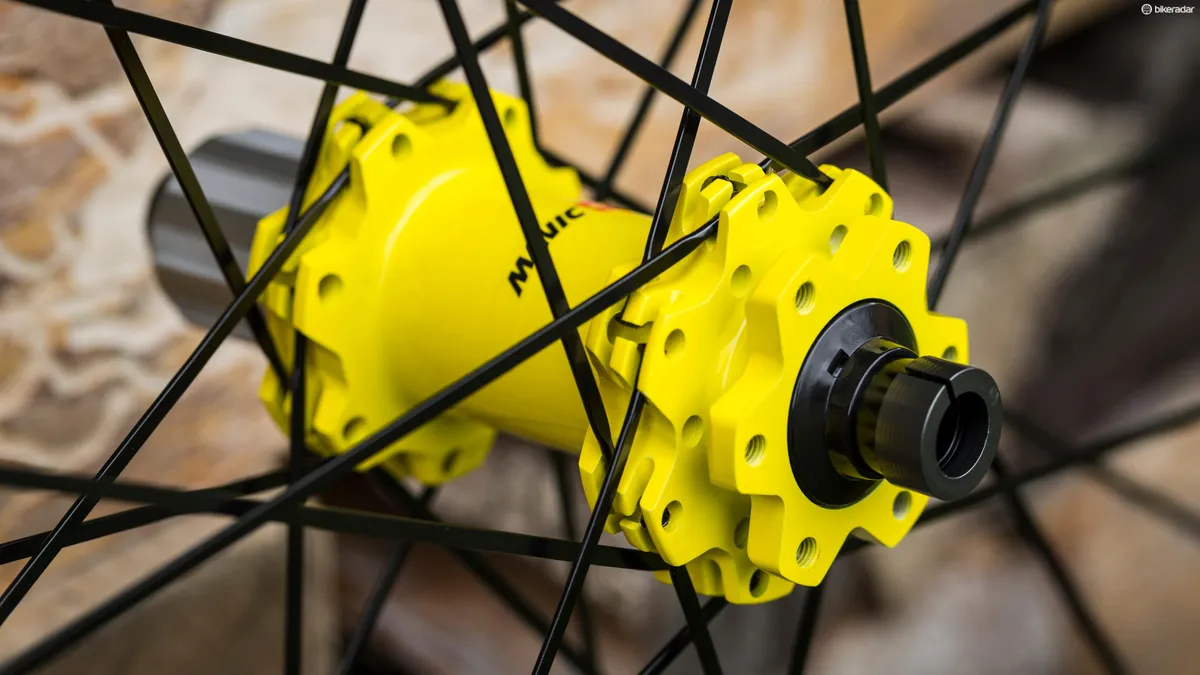
When it comes to the hubs, these run on sealed cartridge bearings and the rear hub uses Mavic's ITS-4 freewheel system, which it says offers fast engagement and instant power uptake.
Lacing the rims to the hubs are straight pull bladed spokes. These are held into the hubs by machined slots and Mavic says the design of this interface keeps the spoke secure, but allows for slight movement and bump absorption.
Deemax DH

The main differences of the 2018 DH wheel compared to the old model is a new rim profile and an increase in width from 21mm to 28mm. Thanks to the new design and a reduction in the spoke count in the rear wheel from 32 to 28, a pair of the new 27.5inch wheels is claimed to weigh 1,944g, 71g lighter than the old models.
The front wheel runs on a 20mm axle, but adaptors are available reducing this to 15mm. The rear wheel comes in 157x12mm as standard, but 142mm adaptors are included. There is also the option for either a standard cassette body or a SRAM XD driver. Wheels come supplied with UST tubeless valves and no rim-tape is required, so tubeless setup should be a doddle.
Deemax Pro
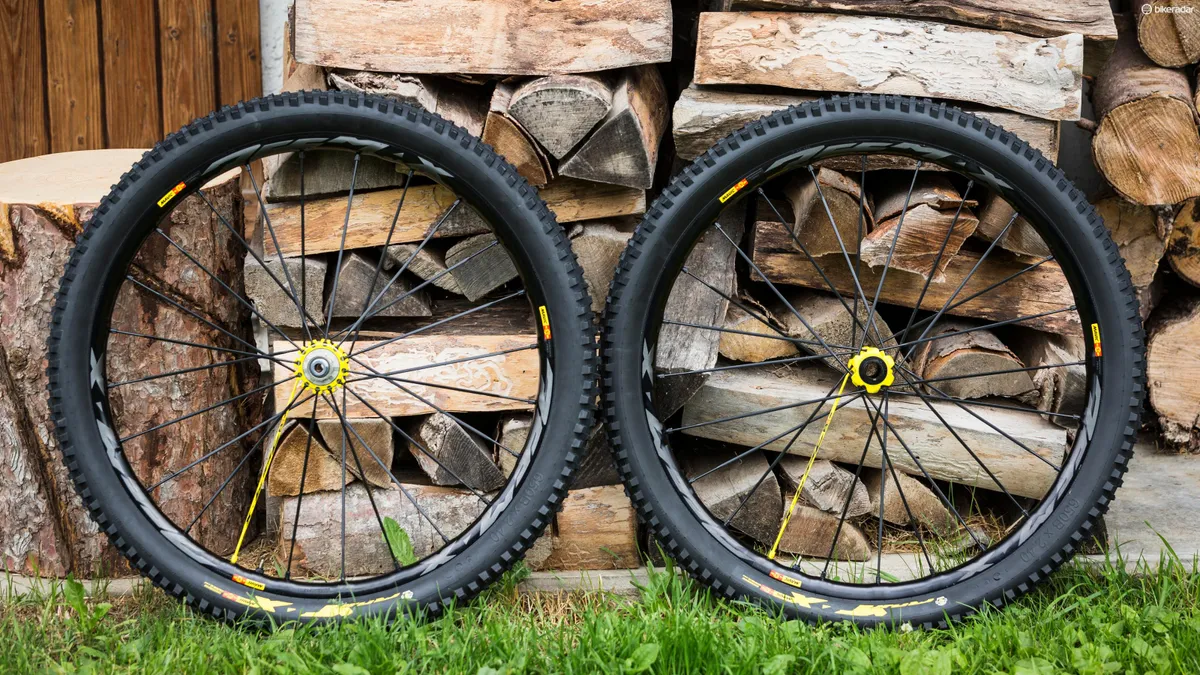
Mavic released its Deemax Pro enduro wheelset earlier this year and it remains unchanged for 2018. The brand sees this wheelset as being a wheel and tyre system, so it's been designed to work as a package with the Claw and Pro tyres.
When it comes to rim widths, Mavic has employed a slightly different theory to that of its DH wheels. It feels that enduro riders and EWS racers in particular ride more reactively, making last minute line choice decisions, and this requires a wheel with different characteristics.
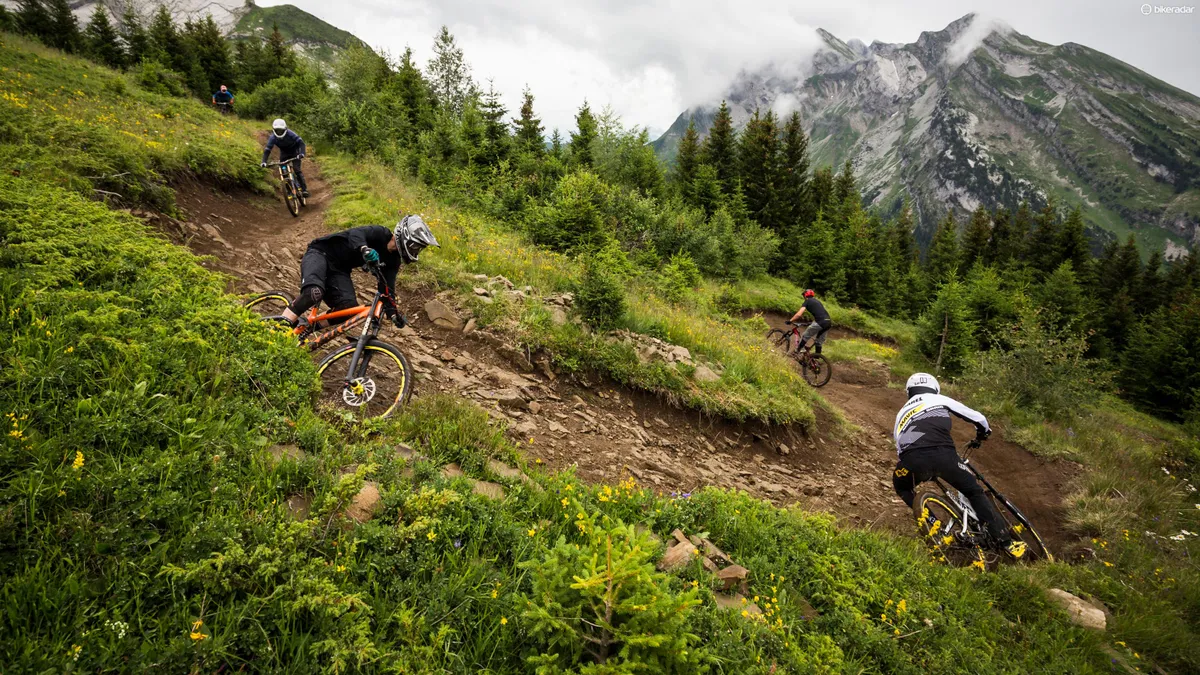
Like the DH wheel, a 28mm rim is used upfront to give a stable, forgiving ride, but out back, the Pro uses a narrower 25mm rim, the idea being that as well as saving weight, it allows the rear wheel to deform and create a better turning radius. The spokes on the Pro wheelset are also made from aluminium, rather than steel, for the same reason. A blend of aluminium called Zicral is used, which Mavic says offers elasticity and an excellent strength to weight ratio.
The Pro wheels are available in both Boost and non-Boost spacings, with front 15mm and rear 12mm axles. Quick release adaptors are available. Tubeless valves and tyre sealant are also supplied.
Deemax shoes
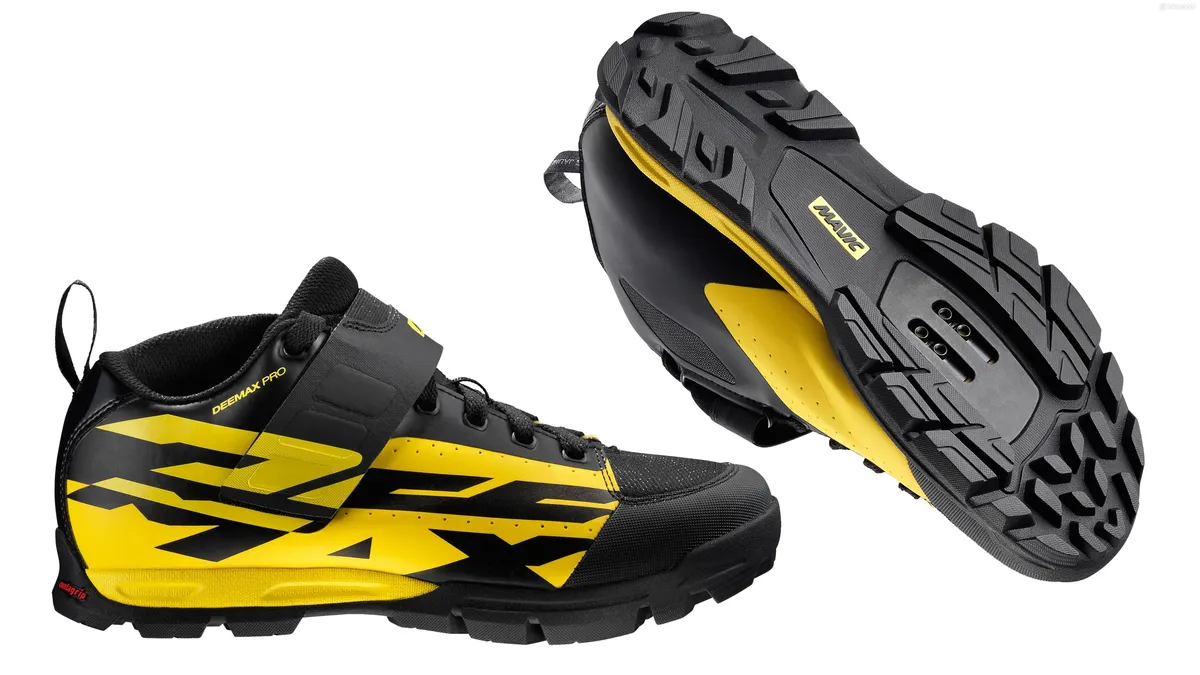
Besides wheels, the other flagship product of the Deemax range is the release of two gravity orientated shoes: the Mavic Pro and Mavic Elite.
The shoes have been designed with EWS racing in mind, claiming to offer race performance and power transfer, combined with all-day comfort. The shoe is asymmetric, with more ankle protection on the crank side and heel and toe protection.
The Contagrip sole should make hike-a-bikes more bearable and something that's good to see is that the cleat pocket has been moved rearwards to suit downhill riding. This being said, although the shoe is less stiff than Mavic's other offerings, the sole is still quite hard, so it will most likely suit riders from a cross-country background rather than those looking for a flexible downhill shoe.
Mavic Deemax pricing
Wheels
- Deemax Pro: £800/ €999/ $1,099
- Deemax DH: £740/ €899/ $899
Shoes
- Deemax Pro: £140/ €183.99/†$179.95
- Deemax Elite: £115/ €142.99/ $149.95
